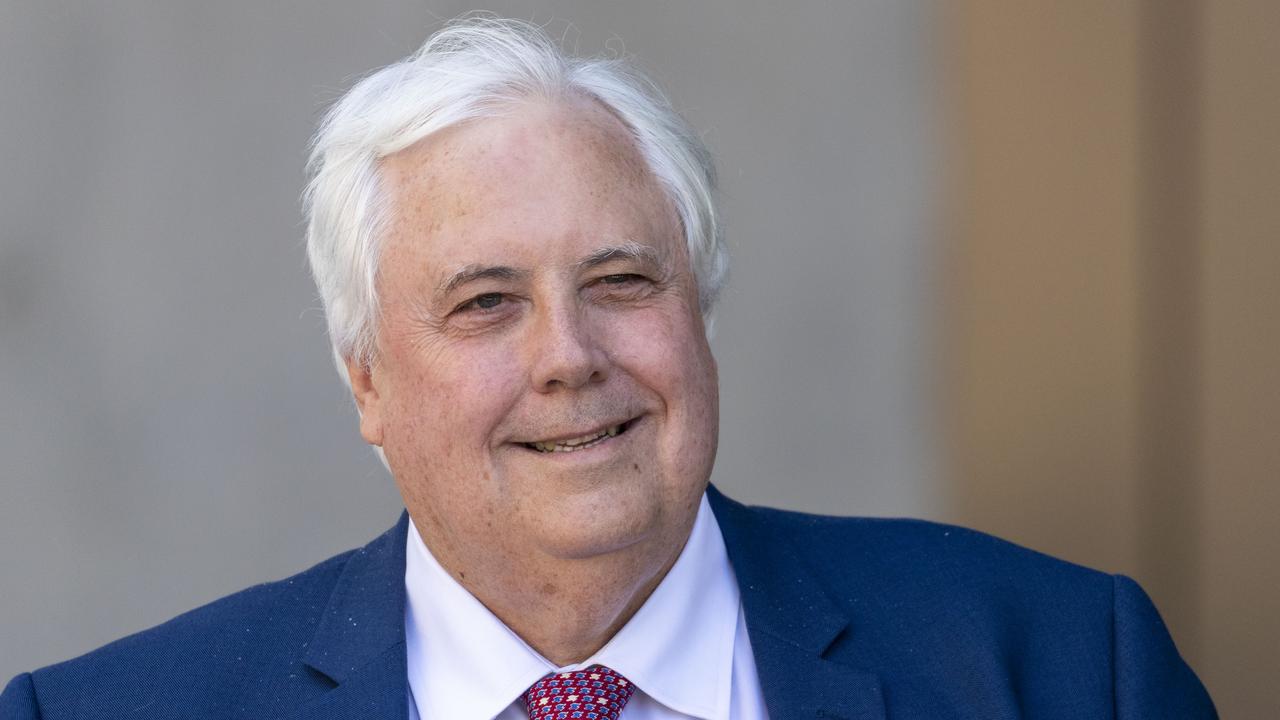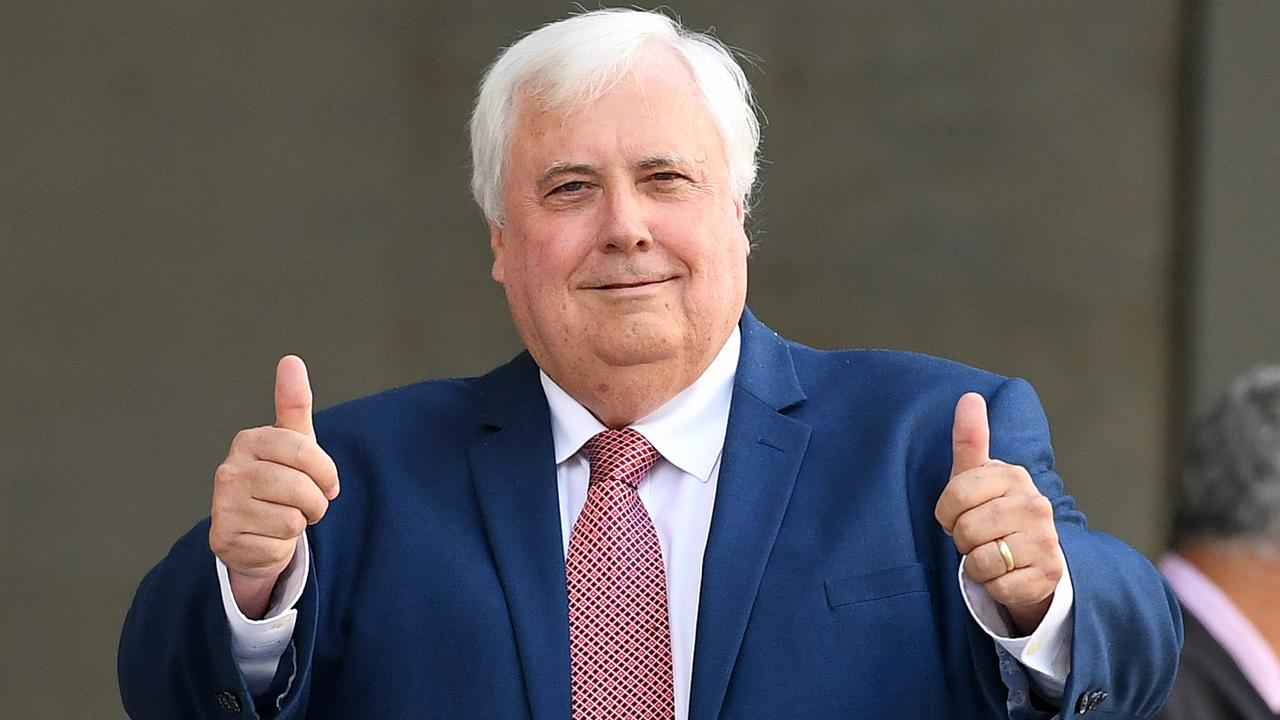Palmer staff fear refinery a safety hazard
LEAKED minutes from a meeting at Clive Palmer's troubled nickel refinery disclose management is concerned about keeping it open.
LEAKED company minutes from an executive meeting at Clive Palmer's troubled nickel refinery disclose that management is concerned about keeping it open amid a slumping nickel price, the ongoing loss of experienced staff, "non-existent morale" and heightened safety fears.
Two of Mr Palmer's top executives, Ian Ferguson and Clive Mensink, told senior company personnel and union delegates at the meeting on October 30 that "people have left quicker than expected".
The company's official minutes quote Mr Ferguson, who is in charge of refinery operations, as saying: "With the nickel price down we have had to tighten up to make sure we keep the refinery open, so have to review any recruitment."
The loss of staff at the Queensland refinery, an officially designated "major hazard facility", near Townsville has heightened concerns about maintaining optimum safety in the volatile environment of nickel production.
The minutes state that an attendee "asked about minimum safe manning levels for areas like the gas plant, querying how the company will address low levels".
Mr Ferguson said he was "passionate" about safety and new staff would be hired and trained.
Staff and union delegates told the meeting that "people like being at the refinery but they don't like the conditions any more".
The company minutes state that "150 people have left the business recently".
Mr Palmer, who did not respond to questions yesterday, has described The Australian's reports about him and his businesses as "fiction" and "beat-ups". Mr Mensink did not respond to questions yesterday. Senior refinery sources told The Australian that Mr Palmer, who has repeatedly described himself as a multi-billionaire, has been preparing to close the refinery and blame it on the Queensland government, Chinese company CITIC Pacific, and the carbon tax.
Mr Palmer was challenged by Premier Campbell Newman on Wednesday to deliver on a promise of a $1 billion upgrade of the refinery, the hiring of 500 more staff and the upgrade of tailings dams filled with highly carcinogenic contaminants that the resources tycoon had wanted to discharge into protected waters inside the Great Barrier Reef.
Asked at the meeting "what the situation is with golf courses keeping the business afloat", Mr Mensink, a nephew of Mr Palmer, said the nickel company "has done it to diversify their investments and improve the revenue streams".
Mr Palmer has used cash from the refinery, which he took over from BHP in 2009, to buy golf courses and a resort at Coolum.
But, the refinery's subsequent losses, which Mr Palmer said in a sworn affidavit were almost $60 million for the year to June 30, 2012, led to cuts to maintenance and environment budgets.
However, the refinery's revenues have been funding unrelated ventures including Mr Palmer's sponsorship of the Club de Madrid, a Spanish think-tank which gave him the titles President -- World Economic Council, and Secretary-General -- World Leadership Alliance.
The Australian revealed this month that Mr Palmer had recently stripped a Sunshine Coast resort and dinosaur park, which is at the centre of a current probe by the Fair Work Ombudsman, out of the refinery's ownership structure and into a separate entity owned and controlled by himself.
Inspectors from Fair Work spent yesterday hearing from former and existing staff about allegations of bullying, abuse and the stripping of entitlements.
The change means that creditors of the refinery in the event of it being liquidated would not be able to make a claim on the resort.
The company's minutes disclose that Mr Ferguson, who was the Palmer United Party's unsuccessful candidate in the seat of Dawson in the September federal election, told staff that there was nothing odd about a nickel refinery investing in golf courses.
Mr Ferguson said that "with real estate you buy in gloom and sell in the boom . . . the golf courses will grow in value and be an asset and create income".
The minutes state: "Ian Ferguson and Clive Mensink confirmed that they are not really hurting the business. The refinery is also not necessarily that profitable."



